|
|
| |
|
| |

Hexagon
Series on
Human, Environmental Security and Peace (HESP)
Edited by
Hans Günter Brauch,
AFES-PRESS, chairman
Free University of Berlin (Ret.)
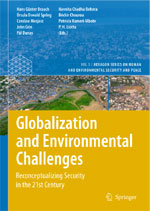 |
Vol 3 |
Hans Günter Brauch, Úrsula Oswald Spring, Czeslaw Mesjasz, John Grin, Pal Dunay, Navnita Chadha Behera, Béchir Chourou, Patricia Kameri-Mbote, P.H. Liotta (Eds.): Globalization and Environmental Challenges: Reconceptualizing Security in the 21 st Century. Hexagon Series on Human and Environmental Security and Peace, vol. 3 ( Berlin – Heidelberg – New York: Springer-Verlag, 2008).
ISBN 978-3-540-75976-8 (book)
ISBN 978-3-540-75977-5 (Online)
This book was released in December 2007
Book Announcements and Online Bookstores
Book Presentations and Press Conferences
Book Reviews
Book Aid Project on this Book |
Content
Editors
Forewords
Prefaces
Authors (biographies)
Publisher
Reviewers
|
Globalization and Environmental Challenges pose new security dangers and concerns. In this reference book on global security thinking, 92 authors from five continents and many disciplines, from science and practice, assess the global reconceptualization of security triggered by the end of the Cold War, globalization and manifold impacts of global environmental change in the early 21st century. In 10 parts, 75 chapters address the theoretical, philosophical, ethical and religious and spatial context of security; discuss the relationship between security, peace, development and environment; review the reconceptualization of security in philosophy, international law, economics and political science and for the political, military, economic, social and environmental security dimension and the adaptation of the institutional security concepts of the UN, EU and NATO; analyze the reconceptualization of regional security and alternative security futures and draw conclusions for future research and action.
This book contains carefully revised papers from three workshops at ISA ( Montreal), IPRA ( Sopron) and the Fourth Pan European Conference on International Relations (The Hague) and additional commissioned papers.
All chapters were anonymously peer reviewed.
For a list of contents (parts) For a complete list of contents (chapters) |
| |
|
|
|
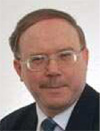 |
Hans Günter Brauch, PD ( Adj. Prof. ) at the Free University of Berlin, chairman of AFES-PRESS, fellow at UNU-EHS in Bonn and editor of this series; he publishes on security and environment issues.
Úrsula Oswald Spring, Professor at National University, Mexico; UNU-EHS chair on social vulnerability; she writes on sustainability, development, gender, disaster, poverty and collaborates with peasants.
|
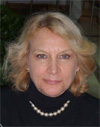 |
| |
|
|
 |
Czeslaw Mesjasz , Assoc. Professor, Vice Dean, Management, Cracow University of Economics; publishes on systems and game theory, conflict resolution, negotiation, economics, finance and security.
John Grin , Professor, Director of the Amsterdam School for Social science Research; publishes on societal transformations in water management, agriculture and health care, and advices practitioners.
|
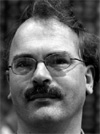 |
| |
|
|
 |
Pál Dunay is faculty member, Geneva Centre for Security Policy. He was senior researcher at SIPRI (2004-2007) and director of the Hungarian Institute of International Affairs in 2007.
Navnita Chadha Behera (New Delhi), Professor at the Nelson Mandela Centre for Peace and Conflict Resolution, Jamia Millia Islamia; she publishes on Kashmir and other South Asian security issues. |
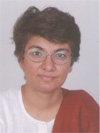 |
| |
|
|
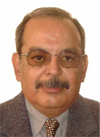 |
Béchir Chourou teaches International Relations at the University of Tunis-Carthage in Tunisia and publishes on Euro-Mediterranean relations, food policy and human security in the Arab world.
Patricia Kameri-Mbote, Associate Professor, School of Law, University of Nairobi, Chair, Department of Private Law and Programme Director, International Environmental Law Research Centre, Nairobi. |
 |
| |
|
|
 |
P. H. Liotta is Professor of Humanities and Executive Director of the Pell Center for International Relations and Public Policy, Salve Regina University, Newport, Rhode Island. |
|
| |
|
|
|
 |
Stavros Dimas
Commissioner for the Environment
European Union
Since 2004 |
“Globalisation and Environmental Challenges: Reconceptualising Security in the 21 st Century – sums up many of the dilemmas and challenges facing policy-makers today.”
“Since the end of the Cold War, the security debate has changed fundamentally. A study which addresses the new challenges and suggests responses will therefore be a welcome addition to the policy-maker’s toolkit. For this reason, I warmly welcome this volume.” |
| |
|
|
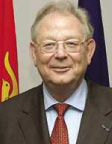 |
Prof. Dr. Hans van Ginkel
Former Rector,
United Nations University
Former United Nations Under-Secretary-General
(1997-2007)
|
“The ‘hexagon’ is also the logo of the UNU system that combines under the goal of human security five research areas on peace, governance, development, science, technology and society as well as the environment.
This unique compilation of global scholarship deserves many readers and should be available in all major university and research libraries in all parts of the world and for all scholars also on the Internet. |
| |
|
|
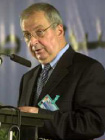 |
Prof. Dr. Klaus Töpfer
Former Executive-Director, United Nations Environment Programme (1997-2006)
Former Under-Secretary General of the United Nations |
“This book deserves many readers in all parts of the world, especially in those countries where university and research libraries may not be able to afford such references books. It is hoped that these scientific and policy-relevant messages can again be made available with the support of private foundations and donors to the young generation in the global South that will experience many of these challenges to their security and survival during this century.” |
| |
|
|
|
 |
Jonathan Dean ( USA)
is adviser on Global Security Issues, Union of Concerned Scientists (UCS),
and co-chairperson of the Scientific Advisory Board of AFES-PRESS |
“The chances are good that after one or two congressional election cycles and a presidential election, the United States will rejoin its own cooperative tradition of the past century and that the trend toward a cooperative world security system will be resumed, with greater U.S.-European collaboration at the UN, in controlling armed violence, and in coping with the environment. |
| |
|
|
 |
Úrsula Oswald Spring (Mexico)
is research professor at the National University of Mexico (UNAM) in the Regional Multidisciplinary Research Center (CRIM);
first MunichRe Foundation Chair on Social Vulnerability at UNU-EHS;
President of the Board of the Peasant
University in Morelos
and co-chairperson of the Scientific Advisory Board of AFES-PRESS |
“ The results of five decades of development are disappointing, with at least two lost decades in Latin America. The increasing concern with poverty, urbanization, and climate change has led UNDP to shift the traditional narrow security focus linked to nation states to a new concept, directly related to people, it termed as ‘human security’ to complement its goal of ‘human development’.” |
| |
|
|
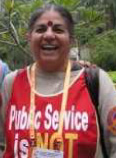 |
Vandana Shiva ( India)
is physicist, ecofeminist, environmental activist, author
In 1993, she received the Right Livelihood Award ( Alternative Nobel Prize) “for placing women and ecology at the heart of modern development discourse”
In 1995 she co-founded Diverse Women for Diversity. |
“Corporate globalization is a transfer of knowledge and natural resources, like seeds and water held, conserved, and used collectively by women for their communities, to global corporations. This transfer of wealth goes hand in hand with the transformation of nature, society, and women’s status. Biodiversity and water are transformed from commons to commodities. Women, the creators of value, the providers of basic needs are turned into a dispensable sex.” |
| |
|
|
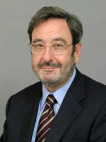 |
Narcis Serra Serra (Spain)
is President of the CIDOB Foundation and President of Caixa Catalunya.
He was Mayor of Barcelona (1979-1982), Spanish Minister of Defence (1982-1991) and Vice President of the Spanish Government. (1992-1995) |
The Mediterranean presents many challenges in terms of security.…Thus in 1995, the leaders of European and Mediterranean countries decided to launch the Barcelona Process with the aim of working together to build an area of peace, shared prosperity, and human exchange.…In terms of security… the Mediterranean cannot be excluded from the growing interest in the concept of human security. |
| |
|
|
More on this book
|
Publisher's Corner
|
Author’s Corner
- Awards
- Other books by these authors
- Obituaries
|
This third volume of the Hexagon Book Series on
Human, Environmental Security and Peace: HESP
was made possible by a research grant
for AFES-PRESS funded by the

|
|
|